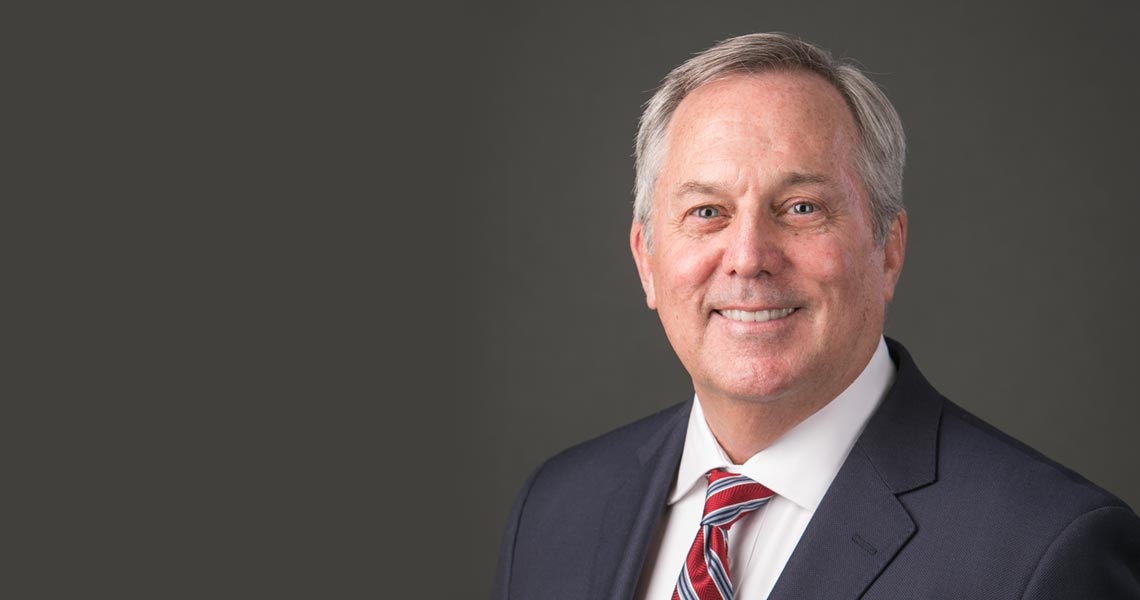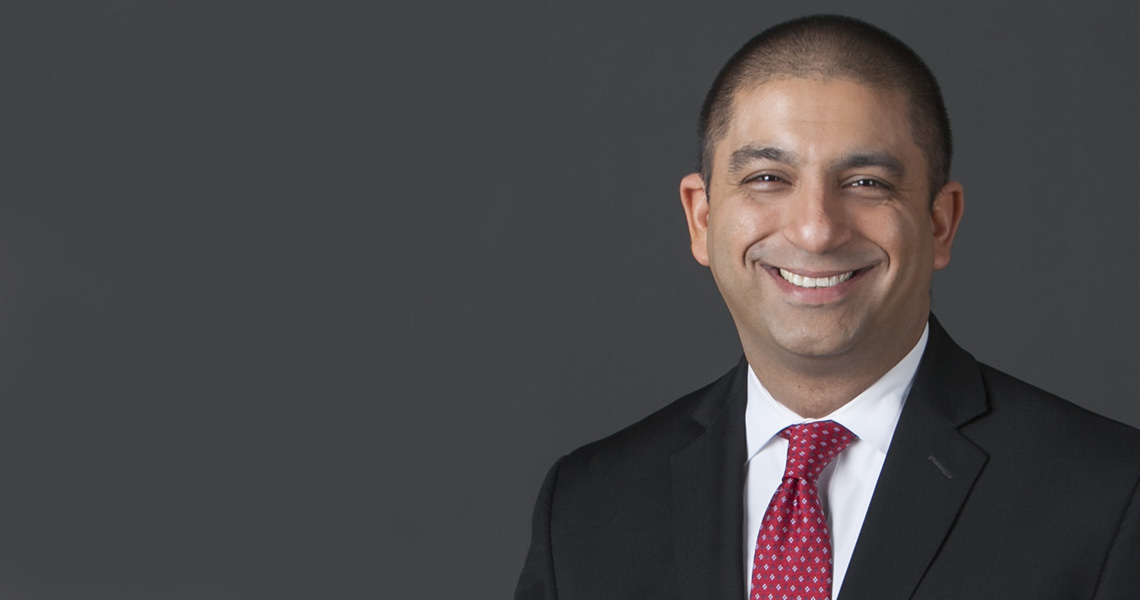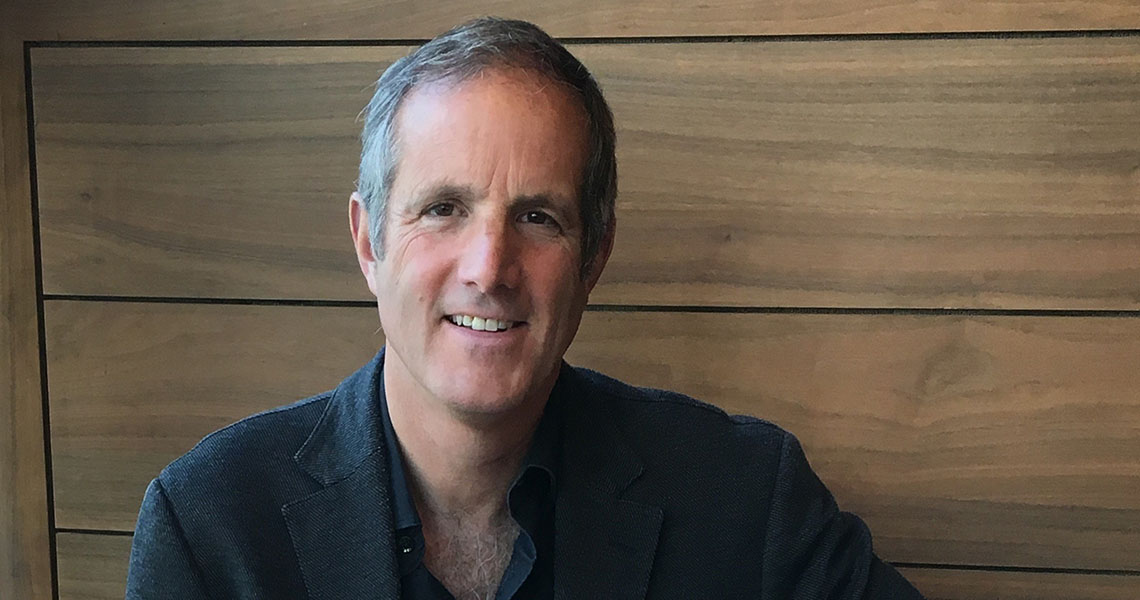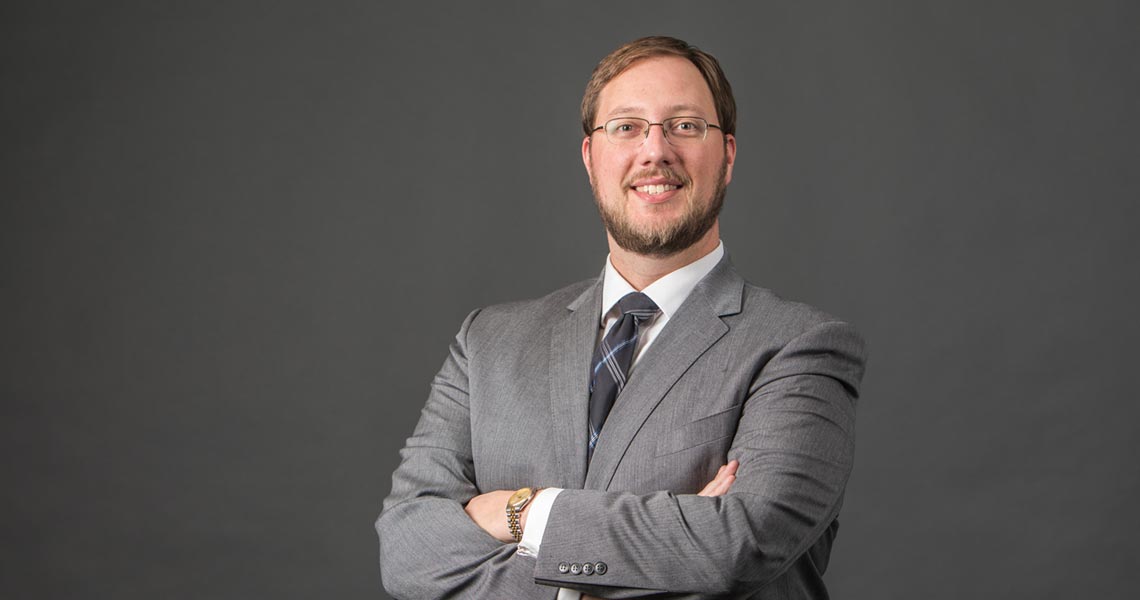Meet the Directors of Our Research & Policy Centers

Henry N. Butler, JD, PhD
Allison and Dorothy Rouse Dean
GMU Foundation Professor of Law
Executive Director, Law & Economics Center
The Law & Economics Center (LEC) has been sponsoring research and educating judges, law professors, economics professors, and policy makers for 45 years (the LEC has been at Mason since 1986). Current LEC programs include: Judicial Education Program, the Attorneys General Education Program, the Congressional Civil Justice Academy, the Henry G. Manne Program on Law & Economics, the Program on Economics & Privacy, and the Program on Financial Regulation & Technology.
How does your Center intersect with the federal government and/or the private sector?
The Law & Economics Center funds scholarly research on important public policy issues and hosts educational programs to help legal professionals improve their understanding of economics, accounting, statistics, regulatory analysis, and related disciplines. The audiences for our educational programs are federal and state judges, state attorneys general and their senior professional staff, Members of Congress and their staff, law professors, and legal professionals. We also frequently host federal and state officials as speakers at our events, along with leading experts from academia, non profits, law and consulting firms, and the business community.
What are some examples of the Center’s work?
In spring 2019, the LEC held its Thirteenth Annual Judicial Symposium on Civil Justice Issues to help judges make sense of America’s rapidly evolving civil litigation environment by highlighting new developments and growing trends in our nation’s courts. The program hosted 67 judges from around the country and featured a major policy address by Assistant U.S. Attorney General Joseph H. Hunt. The event's eight panel sessions offered discussion and debate on a host of pressing civil justice issues by leading litigators, judges, business and economic experts, scholars, and activists.
In fall 2018, the LEC hosted a Symposium on the Law & Economics of Criminal Justice Reform for judges and state AGs. Over two full days of programming, participants heard from leading scholars, current and former law enforcement officials, defense attorneys and prosecutors, public policymakers, and other experts about our evolving understanding of the nature of crime, the motivation of criminals, and the effectiveness of various punishments and rehabilitation programs.
In spring 2019, the LEC’s Program on Financial Regulation & Technology hosted a day-long policy conference on Smart Regulation and the Future of Financial Services, that featured a who’s who of the banking, finance, technology, and regulatory community. Keynote addresses were given by Securities and Exchange Commissioner Hester Pierce and Craig Phillips, Counselor to the U.S. Treasury Secretary. Other speakers included representatives of the Federal Reserve Board of Governors, FDIC, and Office of the Comptroller of the Currency, along with senior executives from leading global financial companies, legal practitioners, and noted academics.
How do Scalia Law students benefit from the work of your Center?
The LEC holds or co-hosts a number of programs that are open to students, faculty, and members of the public, including several day-long public policy conferences and shorter seminars on topics ranging from banking and financial services, privacy and cybersecurity, criminal justice reform, and health and consumer welfare. The Center works with editors of the George Mason Law Review and the Journal of Law, Economics & Policy to co-host their annual symposia. Both the LEC’s Congressional Civil Justice and “Meet the Policymaker” forums are regular events that discuss relevant policy issues and are open to students and the general public.
The LEC is hosting a Meet the Policymakers Forum with General Council of the U.S. Treasury Brent McIntosh on September 12.
Learn more about the Law & Economics Center

Assistant Professor JoAnn Koob
Director
Liberty & Law Center
Launched in fall 2018, the Liberty & Law Center’s Free Speech Legal Clinic works with public interest groups to identify and address cutting-edge litigation affecting freedom of speech, press, and assembly.
How does your Center intersect with the federal government and/or the private sector?
The Liberty & Law Center was established to leverage the law to defend the rights of individuals through public policy events, scholarship, and training of future litigators to defend individuals from government overreach. It is dedicated to studying and advancing the Bill of Rights and other constitutional and individual liberties.
What are some examples of the Center’s work?
The Clinic both actively assists individuals whose free speech rights are being encroached upon by government regulation and prepares future attorneys to be lifelong advocates for the liberties protected by the First Amendment. Clinic students work on cases at the trial and appellate court levels in both federal and state courts.
In fall 2018, the Liberty & Law Center co-hosted a Constitutional Law Symposium dedicated to the 150th anniversary of the 14th Amendment, which protects citizenship rights and liberties and provides protection against state and local governments. The Symposium considered the historical foundations of the 14th Amendment, legal doctrine that has derived therefrom, and its future.
How do Scalia Law students benefit from the work of your Center?
The Liberty & Law Center provides training and mentorship to aspiring First Amendment advocates at Scalia Law. Through programs like the Free Speech Clinic and the Public Interest Litigation Program, Scalia law students explore the meaning of individual liberty in our modern legal system. The Center also hosts reading groups, which are open to all members of Scalia Law, designed to facilitate a larger discussion about the relationship between individual liberty, constitutionalism, and the rule of law. In spring 2019, the Center launched Discussion Over Division, a program which fosters civil discourse between students with differing political perspectives. The repertoire of programs aims to provide the education and hands-on training needed to enhance students’ understanding of the law’s impact on individual liberty.
The Liberty & Law Center is cohosting "A Conversation with Judge Sutton" with the Federalist Society on September 19. Contact liberty@gmu.edu for more information.
Learn more about the Liberty & Law Center.
The Global Antitrust Institute (GAI) was founded in 2013 as an LEC program by Senior Court Circuit Judge Douglas H. Ginsburg (Senior Status, DC Circuit) and Professor Bruce Kobayashi (currently, Director of the Bureau of Economics at the FTC). Current GAI Programs include: Economics Institute for Competition Judges, Economics Institute for Competition Enforcement Officials, and Competition Advocacy Programs.
How does your Center intersect with the federal government and/or the private sector?
The GAI was founded to promote the application of sound economic analysis to competition enforcement around the world as well as in the United States. With our economics institutes, competition advocacy, policy briefings, academic research, and domestic programs, the GAI promotes academic leadership and engages regularly with federal agencies as well as antitrust practitioners and scholars.
What are some examples of the Center’s work?
In spring 2019 our team including Professors Bruce Kobayashi, John M. Yun, and Judge Douglas H. Ginsburg traveled to Lisbon, Portugal for the GAI’s Economics Institute for Competition Law Judges. The GAI hosted 24 competition law judges from the European Union, the United States, and Brazil.
Also in spring 2019, the GAI hosted a conversation with Associate Justice Neil M. Gorsuch and Senior Circuit Court Judge Douglas H. Ginsburg, followed by a panel discussion on Antitrust and Digital Platforms Around the World. Panelists included the Deputy Assistant Attorney General, U.S. Department of Justice (DOJ), Antitrust Division, as well as top foreign antitrust officials. The event was well-attended, including federal enforcers and antitrust practitioners from around the world, as well as Scalia Law students.
How do Scalia Law students benefit from the work of your Center?
Scalia Law students are deeply integrated into the work done by the GAI in a variety of ways. Students work with the GAI Competition Advocacy Program to research and develop advocacy comments submitted to domestic and foreign competition agencies. The students also support GAI’s work through research for academic projects. The GAI also co-sponsors a number of events run by Scalia Law students, including the Annual GAI Invitation Moot Court Competition, which is the only moot court competition in the U.S. devoted exclusively to antitrust law. We also co-sponsor the Annual Antitrust Symposium with the George Mason Law Review.
The GAI is co-hosting a debate September 16 on the topic “Should Antitrust Law Regulate Big Tech?”. The GMU Business Law Society and the Federalist Society are co-hosting the event.
Learn more about the Global Antitrust Institute.

Assistant Professor Jamil Jaffer
Founder and Executive Director
National Security Institute
Founded in 2017, the National Security Institute (NSI) is dedicated to finding real-world answers to major challenges facing the U.S. intelligence, defense, law enforcement, homeland security, and cybersecurity communities. This effort involves NSI and our students working closely with key national security experts in the federal government and the private sector, including the core group of over 100 highly distinguished current and former national security leaders that make up NSI’s advisory board, teaching faculty, and research fellows.
How does your Center intersect with the federal government and/or the private sector?
NSI’s team—along with our student research assistants and others—works to identify the core issues at stake in a given national security debate, convenes a diverse, knowledgeable group of scholars and practitioners, and develops practical, actionable solutions for senior policymakers in the White House, in key departments and agencies, and on Capitol Hill. NSI’s experts bring decades of leadership and applied national security and technology experience from government and industry to this effort, working alongside our students to have a direct and measurable impact on these critically important policy debates.
What are some examples of the NSI’s work?
The National Security Institute regularly hosts events on Capitol Hill to help shape the debate around issues being addressed by Congress. For example, in early 2019, NSI and the Congressional Tech Staff Association held a discussion on the implications of modern technology on national security, featuring Congresswoman Elissa Slotkin (D-Ml), Congressmen Will Hurd (R-TX), former National Security Agency Director Gen. Keith Alexander, Michael Madsen, the Deputy Director of the DoD's Defense Innovation Unit Experimental (DIUx), and Iram Ali, a former House Intelligence Committee and senior DoD staffer who now leads key public policy efforts for Amazon Web Services.
A month later, NSI hosted a standing-room only event on Capitol Hill to talk about the national security threat posed by Chinese telecom companies Huawei and ZTE. This event featured remarks from Congressman Mike Conaway (R-TX) and Congressman Dutch Ruppersberger (D-MD), followed by a panel of NSI and other experts to discuss the recommendations made by two NSI fellows in a recent NSI Law & Policy paper. And in summer 2019, NSI hosted an event at the Rayburn House Office Building that examined the major global geopolitical and foreign policy issues confronting the 116th Congress, as well as the tools Congress could use to shape US international policy efforts. The event featured remarks from Congressman Adam Kinzinger (R-IL) and a panel of NSI experts including Lauren Dealy Mahler, the former Director of Legislative Affairs at the National Security Council in the White House under President Obama.
In partnership with the Woodrow Wilson Center and ICS Village, in fall 2018 and spring 2019, NSI hosted two multi-day events in downtown Washington, DC focused on the cybersecurity of industrial control systems. These two events were each attended by more than a hundred public and private sector experts and policymakers, and involved talks by dozens of industry leaders and key decision-makers, as well as hands-on demonstrations of how these critically important systems work and how potential cyber vulnerabilities might be identified, exploited, and corrected.
Also in fall 2018, during DC CyberWeek, the National Security Institute hosted a first-of-its-kind Tech Bootcamp for Lawyers and Policymakers. This short course is now being further expanded by NSI experts—with the help of NSI student research assistants and staff—to create a more robust educational curriculum for national security lawyers in the federal government, including lawyers and decision-makers at key intelligence agencies.
How do Scalia Law students benefit from to the work of your Center?
Many of NSI’s policy papers, events, and conferences are built on the research and substantive policy work of NSI’s student research assistants. These events and papers drive policy conversations in the Executive Branch and on Capitol Hill, giving NSI students, teaching faculty, and research fellows the chance to influence their policymaking process as it happens. Many of NSI’s events also take place on campus and students have the opportunity to attend and actively participate in these events, including interacting with the speakers and NSI’s experts.
NSI also hosts a summer national security program for students in Italy with Justice Neil M. Gorsuch of the United States Supreme Court. This program, which is going into its third year, has brought over 40 Scalia Law students to study with Justice Gorsuch and myself at the historic University of Padua.
NSI’s curriculum, which has expanded by over a dozen courses in recent years, offers both theoretical and practical training for our students on some of the most challenging national security law issues facing the government and industry today, and prepares our graduates to work for the policymakers, government agencies, law firms, businesses, and public interest organizations that are helping our nation address these critical issues at home and abroad.
The NSI is co-hosting a fireside chat featuring G. Zachary Terwilliger, United States Attorney for the Eastern District of Virginia, on September 26. The event is co-hosted by NSI, the American Bar Association Standing Committee on Law and National Security, and the Intelligence & National Security Alliance.
Learn more about the National Security Institute.

Professor Sean M. O'Connor, MA, JD
Executive Director & Senior Scholar
Center for the Protection of Intellectual Property
Founded in 2012, the Center for the Protection of Intellectual Property (CPIP) is a catalyst for research on a “property rights” approach to intellectual property through a national network of scholars and the hosting of numerous programs and conferences. CPIP’s Executive Director is Professor Sean O’Connor who recently joined Scalia Law from the University of Washington School of Law where he was the Boeing International Professor of Law. Professor O'Connor comes to Scalia Law with a strong background in tech transfer and the business community.
How does your Center intersect with the federal government and/or the private sector?
CPIP interacts with the federal government through our events, clinics, and policy work. We co-host conferences and educational programs with the U.S. Patent and Trademark Office, the U.S. Copyright Office, and the Smithsonian's Lemelson Center for the Study on Invention and Innovation. CPIP’s staff and network of scholars also regularly participate in Hill briefings and panels, help inform policy makers and staffers, and testify before Congress on a number of IP issues.
CPIP also interacts with the private sector through our events, policy work, and clinics. We co-host programs with many local and national law firms, trade associations, and companies working in the innovation and creative industries. CPIP and its staff maintain relationships and draw support from a variety of private sector stakeholders, and our clinics benefit from the input of these partners. CPIP has also established relationships with local practitioners who have gone on to become adjunct professors at Scalia Law.
What are some examples of the Center’s work?
In addition to holding events including our annual fall conference, we are very involved in policy, having authored and/or joined amicus briefs on a wide variety of cases. We have also seen great success from our Arts & Entertainment Law Clinic. The clinic, led by Professor Sandra Aistars, provides students with a variety of opportunities to work with local copyright industry practitioners and government officials.
How do Scalia Law students benefit from the work of your Center?
Scalia Law students benefit from the work of CPIP primarily by participating in CPIP-related clinics, working as Research Assistants on a number of CPIP projects, and taking advantage of the events we host at the law school and around the DC area. This fall, we will launch the Innovation Law Clinic, where students will learn about IP, start-ups, and innovation from Scalia Law faculty and representatives from the government and the private sector.
CPIP also involves students in our events as volunteers assisting in a number of tasks. These programs give students a valuable opportunity to meet and network with potential future employers. CPIP has directly helped many students secure both summer employment and full-time jobs upon graduation.
CPIP is co-hosting the 31st Annual Intellectual Property Section Seminar with the IP Section of the Virginia State Bar on September 20-21.
On October 4, CPIP is hosting its Seventh Annual Fall Conference: “The IP Bridge: Connecting the Lab & Studio”.
Learn more about CPIP.

Assistant Professor Adam White
Director
C. Boyden Gray Center for the Study of the Administrative State
Founded in 2015 by Professor (now Judge) Neomi Rao, the C. Boyden Gray Center is dedicated to exploring the foundational concepts and actual practices of the administrative state. The Gray Center sponsors an interesting range of research and public policy conferences for academics and the Washington public policy community.
How does your Center intersect with the federal government and/or the private sector?
The C. Boyden Gray Center for the Administrative State was founded to promote scholarship and debate on the modern administrative state. In other words, we exist to study the modern federal government’s most significant lawmaking engine, and the ways in which it affects all Americans. Our research roundtables and public conferences bring together diverse mixes of policymakers, scholars, judges, and practitioners.
What are some examples of the Center’s work?
In fall 2018, the Gray Center convened a conference on how to reform the modern veterans’ benefits process. Panels of scholars, practitioners, and government officials focused on how the Department of Veterans Affairs and the federal courts might help to modernize and improve veterans’ access to their benefits. The event was highlighted by a keynote address by Judge Mary Schoelen of the U.S. Court for Veterans Claims.
In spring 2019, the Gray Center hosted its third annual Capitol Hill Conference at the Hart Senate Office Building on Capitol Hill. Panels of scholars discussed Congress’s constitutional legislative powers, for an audience that included private practitioners and government officials.
How do Scalia Law students benefit from the work of your Center?
Most of the Gray Center’s public policy conferences are on campus, open to students to attend and ask questions. And we host a speaker series in which government officials give casual luncheon talks for student audiences, to teach students about careers in administrative law. But most importantly, the Gray Center’s “Alexander Hamilton Fellows” program invites students to participate directly in the Center’s work, by assisting with research and attending the Center’s public events.
The Gray Center is hosting a public policy conference, “The Future of White House Regulatory Oversight and Cost-Benefit Analysis,” on September 13.
Learn more about the C. Boyden Gray Center.